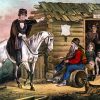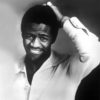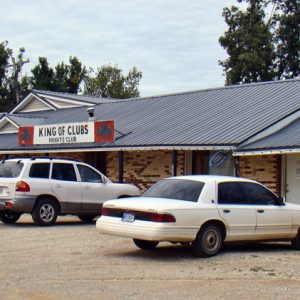calsfoundation@cals.org
King of Clubs
Part of an informal network of roadside nightclubs, often called roadhouses, the King of Clubs operated for more than fifty years under the ownership of Bob and Evelyn King until they sold the club in 2003. Located on U.S. Highway 67, just north of Swifton (Jackson County), the club was a familiar stop for some of the most famous pioneers in rock and roll music in the 1950s. These performers traveled constantly, making extra money and promoting their records by playing dances and shows in countless venues in cities, small towns, and in roadhouses such as the King of Clubs, which was especially favored by those who played the more southern form of rock and roll commonly termed rockabilly. Those who performed at the King of Clubs include Elvis Presley, Johnny Cash, Carl Perkins, Roy Orbison, Jerry Lee Lewis, Conway Twitty, Narvel Felts, Billy Lee Riley, and Sonny Burgess.
To passersby, the King of Clubs was an unremarkable white building on a gravel parking lot. Inside, the club consisted mostly of a large, dark, low-ceilinged room with pool tables in one corner and a small tiled dance floor framed by a horseshoe of chairs and small square tables. At the back of the room was a wooden stage rising about a foot above the dance floor. The club’s modest appearance hid its success as a business and its formative influence on rock and roll, both of which grew from several factors, including its location. Many performers traveled in and out of nearby Memphis, Tennessee, to record their music for Sam Phillips’s famed Sun Records and went up and down Highway 67 (part of which has been designated Rock ’n’ Roll Highway 67) between Little Rock (Pulaski County) and St. Louis, Missouri, making one-night stands at the club easy to arrange. The fact that many of the performers who appeared at the King of Clubs early in their careers went on to become stars helped the club attract other artists. The club was also successful because it drew patrons from nearby Craighead, Independence, and Lawrence counties, where the sale of alcohol was illegal. Until it burned down on December 13, 2010, the club continued to operate and drew local bands, with Sonny Burgess and the Pacers appearing there occasionally.
For additional information:
Guralnick, Peter. Last Train to Memphis: The Rise of Elvis Presley. Boston: Little, Brown, 1994.
Jones, Pete. “The King of Clubs.” Arkansas Democrat-Gazette, June 10, 2001, p. 1S.
Morrison, Craig. Go, Cat, Go! Rockabilly Music and Its Makers. Urbana: University of Illinois Press, 1998.
Stricklin, David, Malinda Huntley, and Caroline Bednar. Interview with Bob King. November 10, 2001. Regional Studies Center. Lyon College, Batesville, Arkansas.
David Stricklin
Butler Center for Arkansas Studies
 Arts, Culture, and Entertainment
Arts, Culture, and Entertainment Music and Musicians
Music and Musicians King of Clubs
King of Clubs 




Comments
No comments on this entry yet.